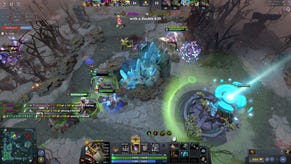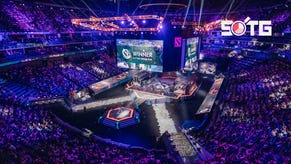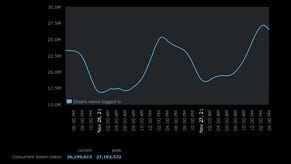Valve explains how Dota 2's communication ban system is training its player base to be more friendly
60 per cent of banned players don't reoffend.
Dota 2 developer Valve has detailed how its new communication ban system is turning its online multiplayer battler into a friendlier place.
Last month Valve introduced the option to ban all communication with players who were abusive verbally or via text chat.

The move was part of a wider investigation by Valve into the reasons why people decided to stop playing. Player abuse was apparently the key factor - much more so than people just naturally failing and quitting.
So the ban system was implemented as a way of notifying potty-mouthed players that their antics weren't appreciated.
"After some discussion internally, we reached the decision that it seemed in the best interest of the Dota community to not push away players who actually enjoyed the game," a new Valve blog post reads.
"As a consequence, this meant restricting the ability for some members of the community to say whatever they want. To put it another way, we only want people to quit playing if they actually just don't like the game."
Four weeks later and the ban system's effects are already apparent. There's been a 35 per cent drop in negative communication and 60 per cent of players who receive bans go on to modify their behaviour and don't receive a further warning.
"Overall, we're happy with how the system is proceeding," Valve concluded. "The communication ban system was an attempt to remove a specific set of behaviours in the community, and given its harshness and the change in expectations it engendered, it was always going to be something that was met with criticism. As is often the case, there's still a lot of work to do, but the early results are promising."

















